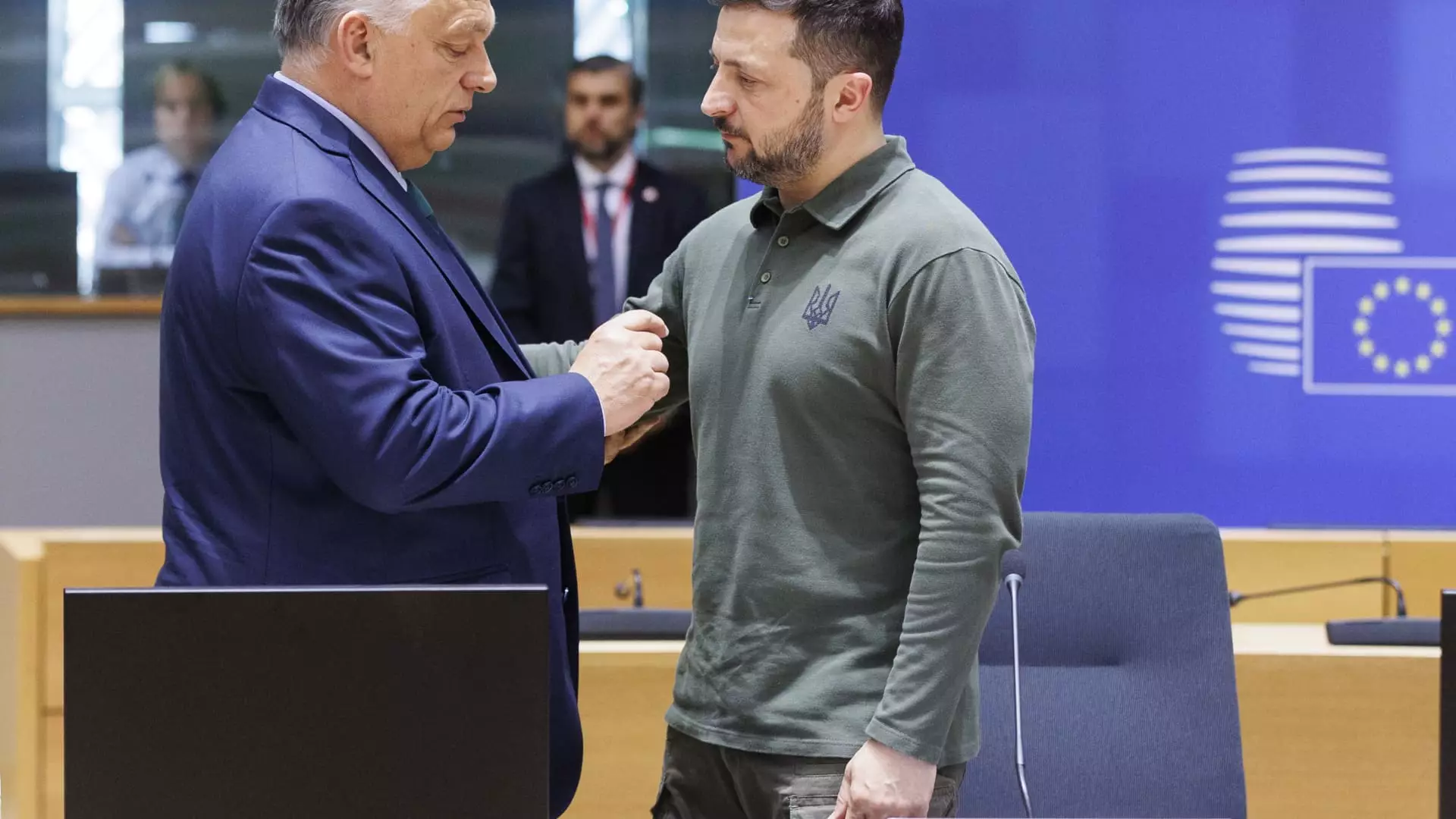Hungarian Prime Minister Viktor Orban’s recent visit to Ukraine marks a significant development in the ongoing conflict in the region. Despite being seen as Russia’s closest ally within the European Union, Orban has expressed intentions to improve ties with Ukraine and sign a broad bilateral cooperation agreement. His meeting with Ukrainian President Volodymyr Zelenskyy focused on discussions about peace in the European region, with Orban urging Zelenskyy to consider a quick cease-fire to accelerate peace talks. This demonstrates Orban’s willingness to play a role in promoting peace and stability in the region, despite his previous criticisms of NATO’s support for Kyiv.
Orban’s visit to Ukraine comes after months of opposition to the EU’s financial aid packages for Kyiv. In a historic move, Orban left the room during a December meeting so EU leaders could take a unanimous stance on opening accession talks with Ukraine. While the bloc has formally started membership discussions with Ukraine and Moldova, Orban’s reluctance to provide weapons to Ukraine and his dissent against deeper NATO support for the country reflect his nuanced approach to the conflict.
Orban’s Meeting with Putin
Orban’s visit to Ukraine also follows his meeting with Russian President Vladimir Putin, where he reassured Putin that Hungary “never wanted to confront Russia.” This meeting highlights Orban’s balancing act between maintaining relations with Russia and engaging with Ukraine and other Western allies. Despite being one of the few Western leaders to meet with Putin since the invasion of Ukraine, Orban’s visit to the war-torn country signals his commitment to finding peaceful solutions to the conflict.
One of Orban’s key concerns during his visit to Ukraine is the alleged failure of the Ukrainian government to safeguard the rights of its ethnic Hungarian minority. Hungary has outlined demands regarding the rights of this minority group as a precursor to permitting Ukraine’s entry into the EU. While Ukraine has made concessions, such as allowing institutions of higher education to choose their language of instruction, excluding Russian, there are still lingering concerns about the protection of minority rights in the region.
Orban’s visit to Ukraine and his discussions with President Zelenskyy have important implications for future peace talks in the region. As Ukraine continues to seek support from its Western allies, Orban’s role as a mediator between Russia and the EU could be crucial in finding a peaceful resolution to the conflict. Despite his controversial stance on certain issues, Orban’s willingness to engage with all parties involved in the conflict demonstrates a nuanced approach to diplomacy.
Overall, Hungarian Prime Minister Viktor Orban’s visit to Ukraine signifies a complex interplay of geopolitical factors and his own political agenda. As the conflict in the region continues to unfold, Orban’s role as a key player in peace negotiations will be closely watched by the international community. His visit highlights the delicate balance between maintaining relations with Russia and engaging with Western allies to find a lasting solution to the crisis in Ukraine.


Leave a Reply